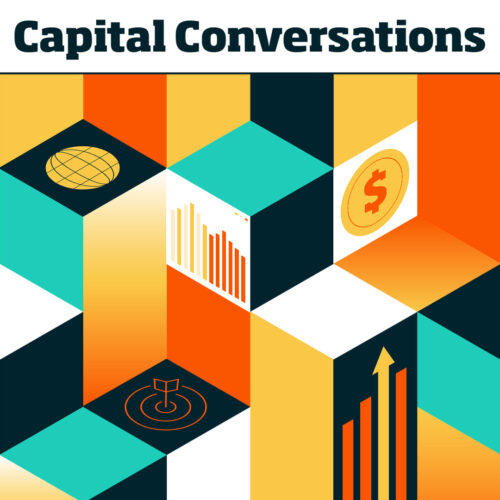
Busting the myths of M&A: 4 steps to success
Busting the myths of M&A: New research reveals why old merger strategies fail and how fresh thinking can lead to lasting value for both sides of the deal....

by Fergal Mullen Published April 10, 2024 in Finance • 6 min read
For the first two decades of this century, venture capital firms were transfixed by fast growth above all else, often forsaking profitability in a bid to scale fast and dominate the market. This led to the rise of certain dogmas believing bigger was better when it came to fund and market size. As we deal with more turbulent markets, it’s time for a reassessment of these dogmas. Below, I highlight five prevailing dogmas and explain why it’s time to retire them.
In the ever-evolving landscape of venture capital, the notion that bigger funds are the golden ticket to success is questionable. Sure, average fund sizes have seen an upward trajectory over the past decade, but this alone does not define success. At Highland Europe, we’re staunch believers that fund size should align with strategy. It’s not a one-size-fits-all scenario. For early-stage ventures, a balanced, diversified portfolio is crucial, while growth-stage endeavors necessitate larger funds, given their different risk profiles.
Let’s talk about success metrics. I firmly believe that absolute returns cannot be ignored, emphasizing multiples of the fund and internal rate of return (IRR). However, a VC firm should also be assessed with the same metrics as a SaaS (Software as a Service) business model. This means factors like investor retention and increased capital commitments should also be considered. Now, the industry buzzes with tales of smaller funds outperforming, but let’s not get too cozy with averages. Venture capital is a top quartile, top decile game – aiming high is the name of the game.
The next dogma I would like to address is the notion that bigger markets are always better. While the general trend in venture capital leans towards chasing larger markets, the real question is whether there’s a market in the gap someone claims to have spotted. The size of the market matters, but what’s more critical is how big a business I can build within that market. Smaller markets might demand more market share, yet a $50-100m+ business with strong metrics, healthy growth, and customer retention holds substantial value.
As a firm, we generally chase bigger markets. However, the savvier players in the game know that team capability and the potential for a business of consequence matter more than just market size. Smarter investors focus on whether a team can build something impactful within a rational size, which doesn’t necessarily mean multi-billion – it can be multi-hundred million.

“The size of the market matters, but what's more critical is how big a business I can build within that market.”
This is more like a trend than a dogma. In the 1990s and early 2000s, hardware was a big driver of returns. However, the focus shifted post-2000 towards capital efficiency and agile business models, veering away from binary outcomes. Hardware isn’t entirely out; it depends on the specific opportunity. Our team, after a decade of primarily software investments, made our first hardware investment in fund five. It’s about spotting the unique opportunity and the founder behind it. In hardware, the bar is higher; I’d prefer a repeat entrepreneur, who demonstrates commitment and brings experience, given its complexity. Early-stage hardware, despite being capital-intensive, sees ventures like drone companies with unique data-gathering applications.
In distinguishing between large market opportunities and niche markets, the winner-takes-most concept prevails in sizable markets where top players dominate the returns. Chasers, typically in positions three to five, struggle with lower win ratios and margins, investing heavily to catch up. My preference lies in investing in the top one or two players in significant markets. However, for niche markets, as we discussed earlier, success isn’t solely about dominating. A $3-500m market can yield a great return if there’s confidence in the business scaling meaningfully. We, at Highland Europe, focus on meaningful scale, typically aiming for a $100m valuation. It’s not dogma, but there’s an ambition to foster a winner-takes-most scenario in portfolios, especially in larger market opportunities.
I find this question particularly important as it highlights a significant concern in our industry. Entrepreneurs invest their time and trust in us, often receiving little to no feedback, even after sharing extensive data. It’s a practice we aim to change at Highland Europe. For us, the greatest marketing opportunity lies in delivering quality feedback, even in rejection. Too often, entrepreneurs are left in the dark with a generic “I’ll discuss with my partners” response, which typically means it’s a “No.” We believe in providing constructive feedback, whether it’s a not-now or a not-ever scenario. In the latter case, while it might be tough feedback, it’s crucial to explain why an opportunity isn’t suitable for us. In “not-now” situations, specific feedback on size, growth rate, unit economics, and team gaps are vital. Good manners and fair return for an entrepreneur’s time are foundational to fostering a culture of mutual respect and continuous improvement.
Listen to these two podcast episodes where I explore in more detail dogmas which should be debunked, including the prioritization of experienced founders over first-time entrepreneurs, the reconsideration of geographical proximity as crucial for successful investments, and a critical examination of the unicorn or bust mentality.

In this new series from IMD and its Venture Asset Management Initiative, experts explore the dynamic realm of venture capital. Where innovation meets investment, and ideas transform into thriving enterprises.

Co-founder & Partner at Highland Europe
Fergal Mullen is a co-founder and Partner of Highland Europe focused on enterprise SaaS and consumer internet companies (e-commerce, marketplace models, supporting e-commerce infrastructure). Mullen represents Highland Europe on the boards of GetYourGuide.com, AMCS, Nexthink, Bitmovin, Meditopia, Unibuddy, and Podimo. Highland Europe is currently investing from its fifth fund, which is just over €1bn. In total, the firm manages approximately €3bn. Until the formation of Highland Europe, Fergal was a general partner with Highland Capital Partners. He launched the firm in Europe in 2007 and co-founded Highland Europe in 2011.

Research Associate at the IMD Venture Asset Management Initiative
Raphaël Grieco has joined IMD as a Research Associate for the Venture Asset Management Initiative, drawing on over 15 years of leadership experience at the intersection of cross-asset Wealth Management and Technology. Raphael specializes in early-stage venture investing, multi-support educational content creation spanning written and audio formats, as well as building entrepreneurial ecosystems focusing on technology (including crypto and web3).

July 7, 2025 • by Patrick Reinmoeller, Markus Nicolaus in Finance
Busting the myths of M&A: New research reveals why old merger strategies fail and how fresh thinking can lead to lasting value for both sides of the deal....

April 24, 2025 • by Jerry Davis in Finance
Many regional developers have tried and failed to emulate Silicon Valley’s VC-driven model for innovation. Detroit, the birthplace of Ford, is following an alternative route – with promising results....
 Audio available
Audio available
April 23, 2025 • by Karl Schmedders in Finance
CFOs must drive a financially disciplined way to manage environmental risks amid growing pushback against environmental sustainability efforts, explains IMD’s Karl Schmedders....

April 11, 2025 • by Jim Pulcrano in Finance
IMD's Jim Pulcrano interviews Ruchita Sinha, General Partner of venture capital firm AV8 Ventures, and explores her approach to early-stage investing....
Explore first person business intelligence from top minds curated for a global executive audience